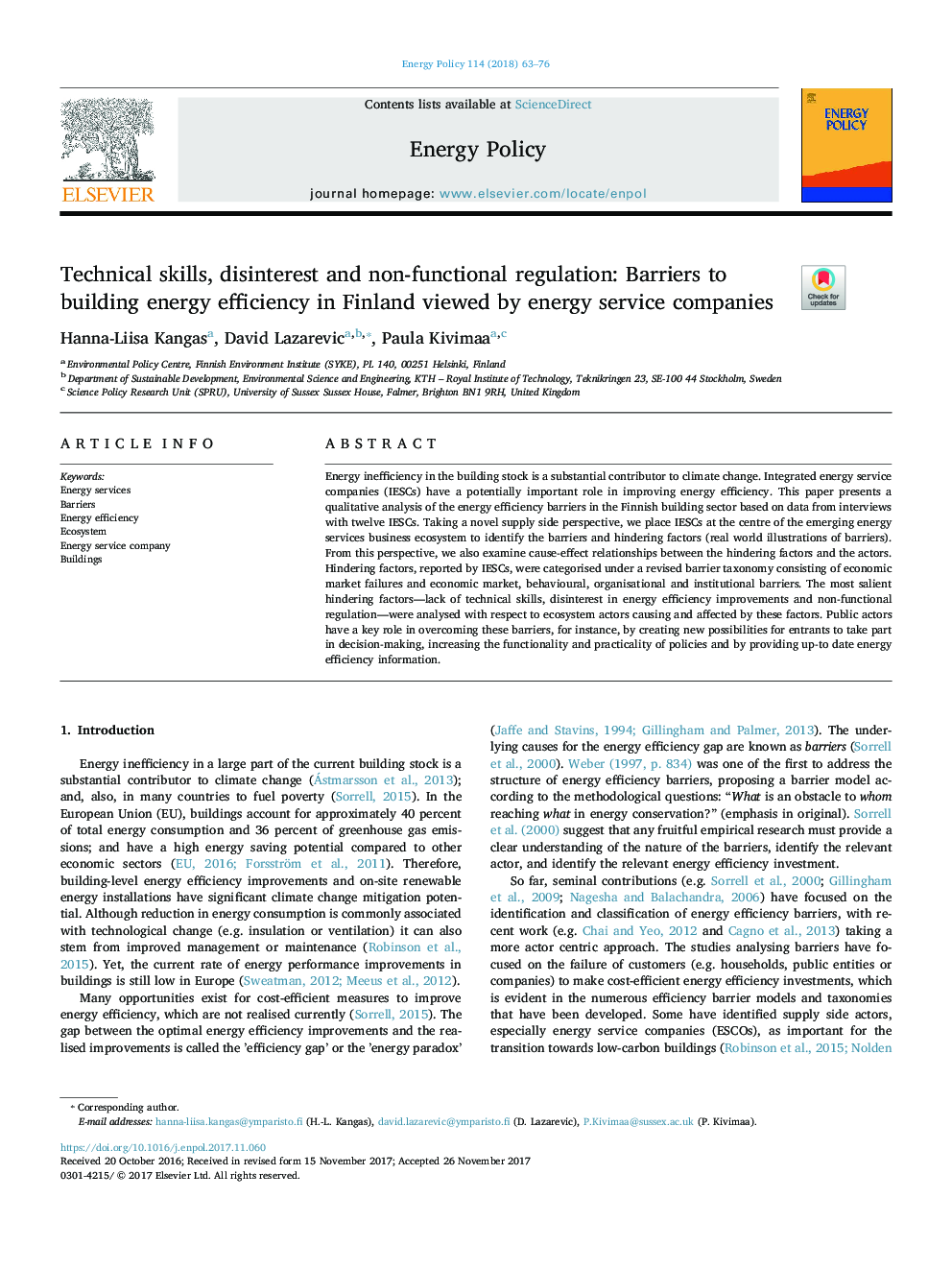| Article ID | Journal | Published Year | Pages | File Type |
|---|---|---|---|---|
| 7397623 | Energy Policy | 2018 | 14 Pages |
Abstract
Energy inefficiency in the building stock is a substantial contributor to climate change. Integrated energy service companies (IESCs) have a potentially important role in improving energy efficiency. This paper presents a qualitative analysis of the energy efficiency barriers in the Finnish building sector based on data from interviews with twelve IESCs. Taking a novel supply side perspective, we place IESCs at the centre of the emerging energy services business ecosystem to identify the barriers and hindering factors (real world illustrations of barriers). From this perspective, we also examine cause-effect relationships between the hindering factors and the actors. Hindering factors, reported by IESCs, were categorised under a revised barrier taxonomy consisting of economic market failures and economic market, behavioural, organisational and institutional barriers. The most salient hindering factors-lack of technical skills, disinterest in energy efficiency improvements and non-functional regulation-were analysed with respect to ecosystem actors causing and affected by these factors. Public actors have a key role in overcoming these barriers, for instance, by creating new possibilities for entrants to take part in decision-making, increasing the functionality and practicality of policies and by providing up-to date energy efficiency information.
Related Topics
Physical Sciences and Engineering
Energy
Energy Engineering and Power Technology
Authors
Hanna-Liisa Kangas, David Lazarevic, Paula Kivimaa,
